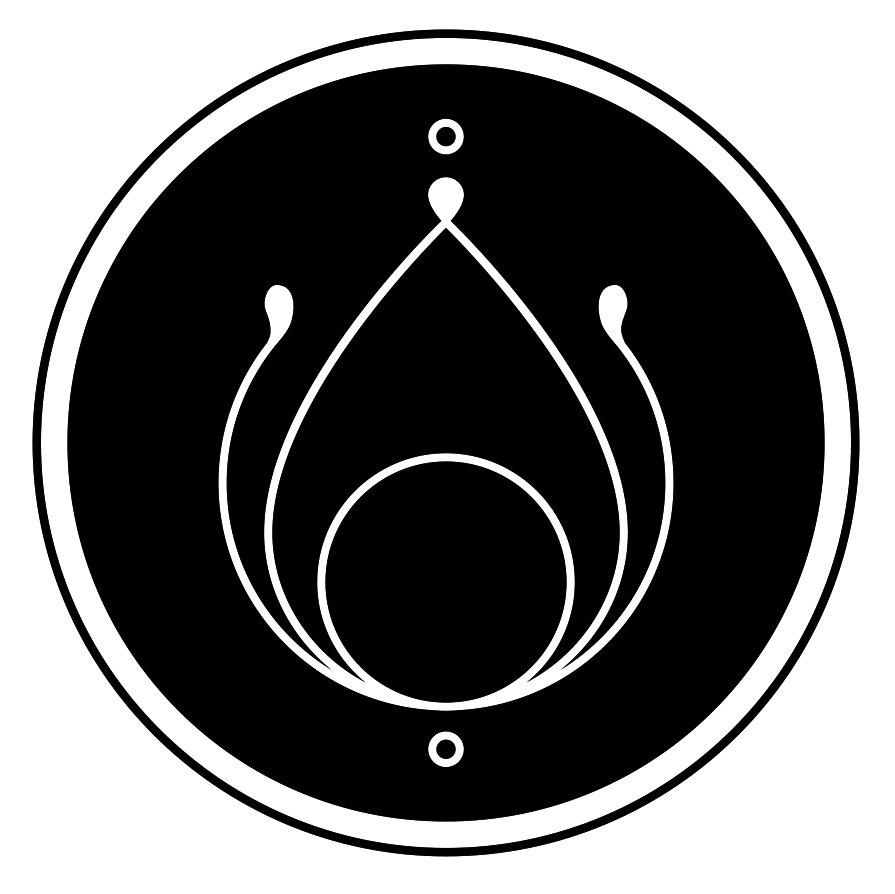Yoga is not a humanistic philosophy
*ακοκουθεί κείμενο στα Ελληνικά
The yoga tradition is not a humanistic philosophy, nor is it founded on humanistic principles such as reason, social progress, or human autonomy. Rather, it is a philosophy of inward transcendence and liberation—a system of thought and practice aimed at freeing consciousness from duḥkha (suffering), avidyā (ignorance) and the cycle of birth and death, saṃsāra. This liberation, known as mokṣa or kaivalya, is not achieved through social action or moral improvement but through inner discipline, meditation and the experiential realization of truth.
Its philosophical ground is deeply metaphysical. The distinction between puruṣa (pure, immutable consciousness) and prakṛti (changing nature) is foundational to classical yogic thought. The goal is not the strengthening of the human personality but its surpassing. Yogic practices—from the ethical precepts of yama and niyama to techniques of meditation and devotion (īśvarapraṇidhāna)—do not aim at social integration or psychological empowerment but at inner emancipation from the bonds of material existence.
Similar currents of transcendence and liberation appear in ancient Greek philosophy, though expressed with different terms and cosmologies. For Plato, philosophy is a study of death—a practice of freeing the soul from the fetters of body and sense. Anámnēsis is the process by which the soul recollects the truth it knew before embodiment, overcoming lēthē induced by bodily existence. Orphic and Pythagorean traditions speak of purification (katharsis) of the soul and apolýtrōsis from the cycle of births, aiming at union with the divine or return to primordial harmony. The Stoics seek apátheia—freedom from passions and alignment with the Logos of the cosmos. Neoplatonists such as Plotinus describe the epistrophē of the soul toward the One, a gradual transcendence of multiplicity and material fragmentation; theōsis is the final liberation.
As yoga seeks mokṣa through the discrimination of puruṣa and prakṛti, so ancient Greek philosophy distinguishes soul from body, the intelligible from the sensible, and pursues return to truth by purification, recollection and contemplation. Lēthē in Greek thought is an obstacle to truth—parallel to avidyā in yoga. In both traditions liberation is inward, existential and profoundly transformative.
Thus, yoga is not a humanistic philosophy, yet it can function as a living bridge between ancient traditions of inward transcendence and contemporary existential sensibilities. Its practice can offer space for inner transformation, not as an affirmation of human power but as its surpassing—a summons toward the achronic, the ineffable and the liberative.
With ❤️ Marilena
Η Yoga δεν είναι ανθρωπιστική φιλοσοφία
Η yoga δεν είναι ανθρωπιστική φιλοσοφία, ούτε θεμελιώνεται σε ανθρωπιστικές αρχές όπως η λογική, η κοινωνική πρόοδος ή η αυτονομία του ανθρώπου. Αντιθέτως, είναι μια φιλοσοφία εσωτερικής υπέρβασης και απελευθέρωσης—ένα σύστημα σκέψης και πρακτικής που στοχεύει στην απελευθέρωση της συνείδησης από τον πόνο (duḥkha), την άγνοια (avidyā) και τον κύκλο της γέννησης και θανάτου (saṃsāra). Η απελευθέρωση αυτή, γνωστή ως mokṣa ή kaivalya, δεν επιτυγχάνεται μέσω κοινωνικής δράσης ή ηθικής βελτίωσης, αλλά μέσω εσωτερικής πειθαρχίας, διαλογισμού και εμπειρικής πραγμάτωσης της αλήθειας.
Η φιλοσοφική της βάση είναι βαθιά μεταφυσική. Ο διαχωρισμός ανάμεσα στο puruṣa (την καθαρή, αμετάβλητη συνείδηση) και την prakṛti (τη μεταβαλλόμενη φύση) αποτελεί θεμέλιο της κλασικής γιογκικής σκέψης. Ο σκοπός δεν είναι η ενίσχυση της ανθρώπινης προσωπικότητας, αλλά η υπέρβασή της. Οι πρακτικές της yoga—από τις ηθικές αρχές των yama και niyama, μέχρι τις τεχνικές του διαλογισμού και της αφοσίωσης (īśvarapraṇidhāna)—δεν αποσκοπούν στην κοινωνική ενσωμάτωση ή στην ψυχολογική ενδυνάμωση, αλλά στην εσωτερική αποδέσμευση από τα δεσμά της υλικής ύπαρξης.
Παρόμοια ρεύματα υπέρβασης και απελευθέρωσης συναντάμε και στην αρχαία ελληνική φιλοσοφία, αν και εκφράζονται με διαφορετικούς όρους και κοσμοαντιλήψεις. Στον Πλάτωνα, η φιλοσοφία είναι μελέτη θανάτου—μια άσκηση αποδέσμευσης της ψυχής από τα δεσμά του σώματος και των αισθήσεων. Η ἀνάμνησις είναι η διαδικασία με την οποία η ψυχή ανακαλεί την αλήθεια που γνώριζε πριν ενσαρκωθεί, υπερβαίνοντας τη λήθη που προκαλεί η σωματική ύπαρξη. Οι Ορφικοί και Πυθαγόρειοι μιλούν για την κάθαρσιν της ψυχής και την ἀπολύτρωσιν από τον κύκλο γενέσεως, με στόχο την ένωση με το θείο ή την επιστροφή στην αρχέγονη αρμονία. Οι Στωικοί επιδιώκουν την ἀπάθεια—την ελευθερία από τα πάθη και την εναρμόνιση με τον Λόγο του κόσμου. Οι Νεοπλατωνικοί, όπως ο Πλωτίνος, περιγράφουν την ἐπιστροφή της ψυχής προς το Ένα, μέσω βαθμιαίας απομάκρυνσης από την πολλαπλότητα και την υλική διάσπαση. Η θέωσις είναι η τελική απελευθέρωση.
Όπως η yoga επιδιώκει την mokṣa μέσω της διάκρισης μεταξύ puruṣa και prakṛti, έτσι και η ελληνική φιλοσοφία διακρίνει την ψυχή από το σώμα, το νοητό από το αισθητό, και επιδιώκει την επιστροφή στην αλήθεια μέσω κάθαρσης, ανάμνησης και θεωρίας. Η λήθη στην ελληνική σκέψη είναι εμπόδιο προς την αλήθεια—όπως η avidyā στην yoga. Και στις δύο παραδόσεις, η απελευθέρωση είναι εσωτερική, υπαρξιακή και βαθιά μεταμορφωτική.
Έτσι, η yoga δεν είναι ανθρωπιστική φιλοσοφία, μα μπορεί να λειτουργήσει ως ζωντανή γέφυρα ανάμεσα σε αρχαίες παραδόσεις εσωτερικής υπέρβασης και σύγχρονες υπαρξιακές ευαισθησίες. Η πρακτική της μπορεί να προσφέρει χώρο για εσωτερική μεταμόρφωση, όχι ως επιβεβαίωση της ανθρώπινης δύναμης, αλλά ως υπέρβασή της—μια πρόσκληση προς το ἄχρονον, το ἄρρητον και το ἀπελευθερωτικόν.
Με ❤️ Μαριλένα
Dreems, Words, Arts immersed from Silence
A self-awareness and transformative program that combine visual arts with meditative, contemplative, esoteric practices aiming to begin the healing process. This program is a healing journey using practices from the tradition of Śakta Tantra, Yoga Nidrā and other Contemplative Practices, creative journaling and intuitive art expression. Every girl and woman over 16 years old who would like to cultivate their higher intuition, beauty, harmony, expression of creativity with open heart, is welcome.
Start any time
Marilena’s approach of Silentruth Yoga Practice is Tantrik, as it approaches the human being and body as a space for transformation and embodiment. A healing, therapeutic, subtle and esoteric approach aiming to embody sacredness, inner awakening that leads to transformation. It’s accessible, adaptive and at the same time meditative, therapeutic and sacred as it allows the connection with ones inner wisdom. With respect and responsibility to every individual needs at the right time, Marilena support her students all the way to discover themselves.


